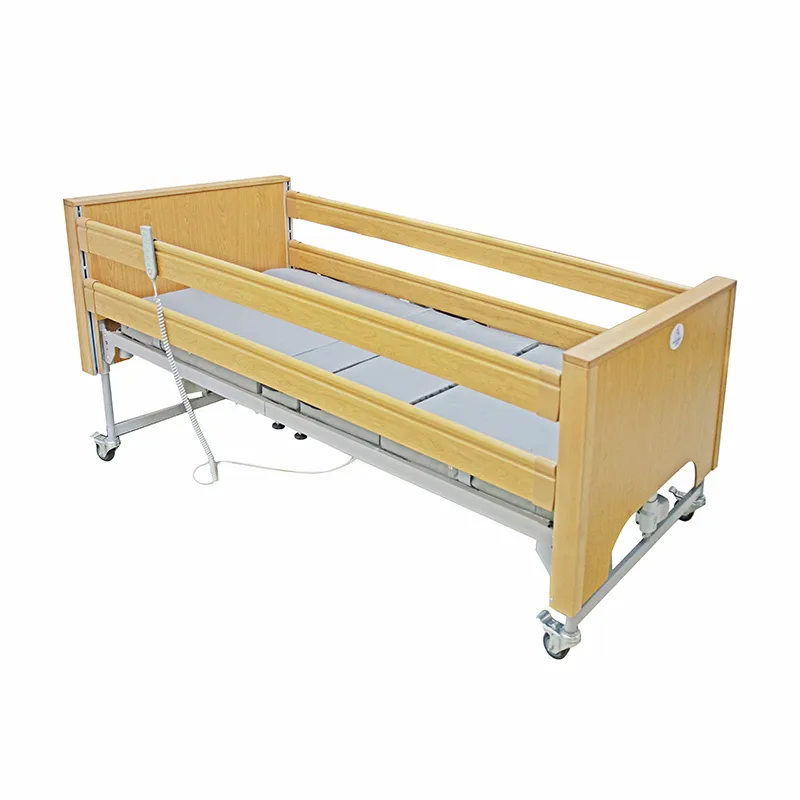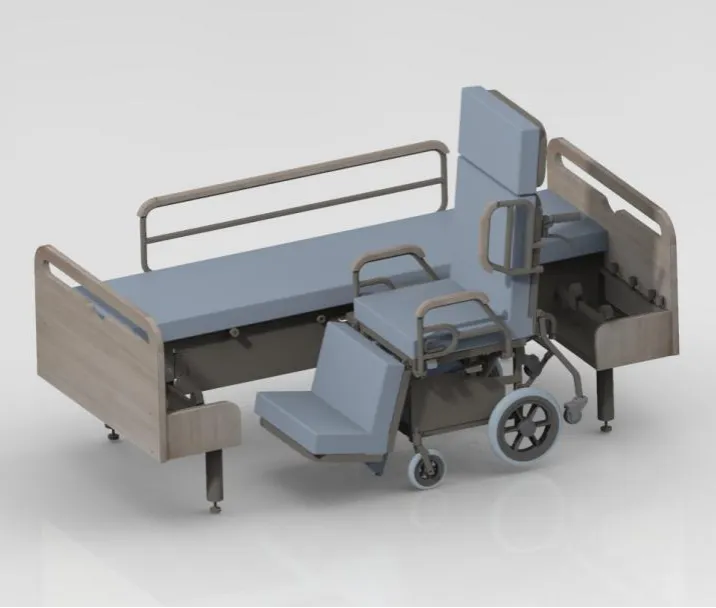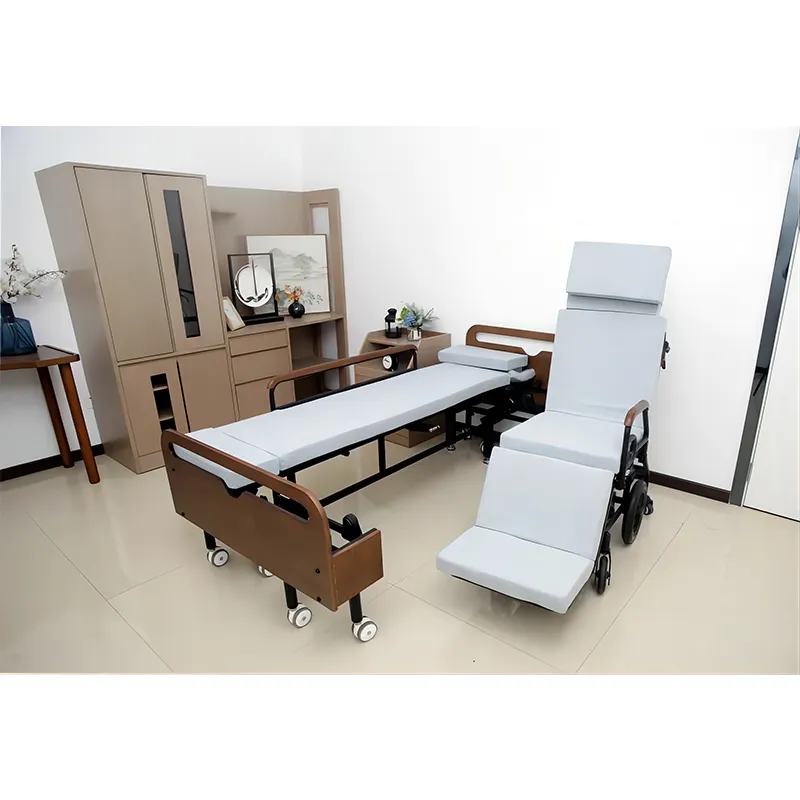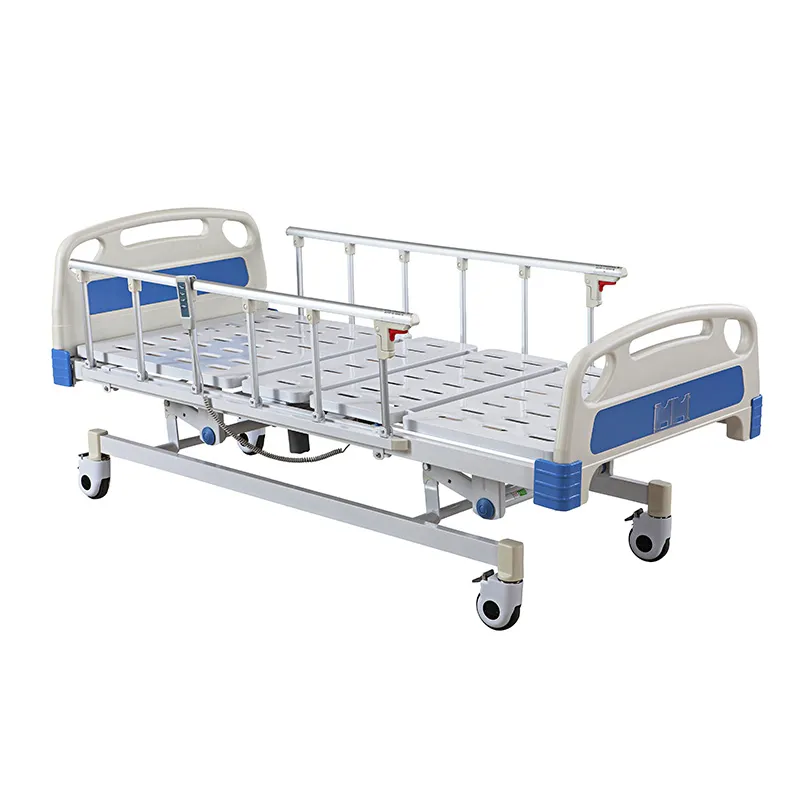
Do Nursing Homes Provide You With Hospital Beds?
2024-10-01 15:30
When people talk about nursing homes, many questions come to mind: What is the quality of care? Are the facilities comfortable? Will the necessary medical equipment be provided? Especially for elderly people who need long-term care, the provision of hospital beds is directly related to the quality of life. So, will nursing homes provide you with hospital beds? Before we delve into this question, let's first understand what nursing homes are and how they support residents.

What is a nursing home?
Nursing homes are institutions that specialize in providing living care, medical care and social activities for the elderly. They usually provide a place to live for elderly people who cannot live completely independently but do not need inpatient care. The purpose of nursing homes is to help the elderly maintain their dignity, improve their quality of life, and provide necessary support in their later years.
The services of nursing homes usually include help with daily life, medical care, social activities and psychological support. Different nursing homes vary in service quality and facilities, and the charging standards will also vary depending on the region and service content.
Do nursing homes provide hospital beds?
The answer is yes, most nursing homes do offer hospital beds, especially for those residents who require special care. These hospital beds are often adjustable so that caregivers can more easily assist residents with body positioning, bathing, and other daily activities. The type and number of hospital beds may vary depending on the size of the nursing home and the level of care provided. Some nursing homes are equipped with high-end, fully electric hospital beds, while others may offer basic manually adjustable beds. However, regardless of the type of hospital beds, they are designed to enhance the comfort and safety of residents.
These hospital beds often have the following features:
● Adjustable head and foot of the bed: This allows the elderly to sit up or lie down more comfortably in bed, helping to improve their quality of life.
● Height adjustment: Nursing home hospital beds are often height-adjustable to make it easier for caregivers to provide care services to the elderly.
● Safety guardrails: To prevent the elderly from accidentally falling, hospital beds are often equipped with safety guardrails.

Do continuing care retirement communities offer hospital beds?
Continuing Care Retirement Communities (CCRCs) are comprehensive senior living communities that typically include independent living, assisted living, and nursing homes. CCRCs provide a seamless transition of care for seniors who are no longer suitable for independent living. In this environment, the provision of hospital beds is a standard service, especially in the nursing home or assisted living component. The advantage of CCRCs is that care can be gradually adjusted as the health of the elderly changes, without having to relocate to another facility. This continuity of care model not only improves the quality of life of the elderly, but also reduces the pressure on the family.
How can retirees benefit from luxury medical hospital beds?
Luxury medical hospital beds usually have many advanced features, such as memory foam mattresses, fully electric adjustment systems, heating and massage functions. These hospital beds not only improve comfort, but also effectively prevent bedsores and other complications. For seniors who need to stay in bed for a long time, luxury hospital beds are invaluable. They not only improve sleep quality, but also help the elderly better conduct rehabilitation training through precise adjustment functions.
Luxury medical hospital beds usually have the following features:
● High-quality materials: The use of higher-quality materials makes hospital beds more durable and comfortable.
● Multifunctional design: In addition to basic adjustment functions, luxury hospital beds may also be equipped with massage functions, heating functions and other comfort functions.
● Modern control system: Through remote control or mobile phone applications, the elderly can easily adjust the height and angle of the bed to improve their independence.
These luxury hospital beds can not only improve the quality of life of the elderly, but also reduce the workload of caregivers, making care work more efficient.

What kind of personal care services do nursing homes usually provide?
In addition to hospital beds, nursing homes also provide a variety of personal care services. Personal care services in nursing homes usually include helping residents with daily living activities such as bathing, dressing, eating and medication management. In addition, caregivers will regularly monitor the health of residents and provide necessary medical support. For those residents with limited mobility, caregivers will also assist with body position adjustment to prevent the formation of bedsores. In addition to basic care services, some nursing homes also provide physical therapy, occupational therapy and social activities to improve the quality of life of residents.
● Daily life assistance: Help the elderly complete daily activities such as washing, dressing, and eating.
● Medical care: Provide medication management, health monitoring, and basic medical care.
● Rehabilitation services: Provide physical therapy, occupational therapy, and speech therapy for elderly people in need.
● Psychological support: Provide psychological counseling and emotional support to help the elderly cope with emotional problems such as loneliness and anxiety.
These personal care services can help the elderly maintain a basic quality of life and reduce their burden in daily life.
Are there health care professionals in the nursing home?
Yes, most nursing homes are equipped with health care professionals. These professionals usually include nurses, doctors, physical therapists, and other medical staff. Their duties are to provide services such as medical care, health monitoring, and rehabilitation treatment for the elderly.
The role of health care professionals in nursing homes is very important because they can detect and deal with health problems of the elderly in a timely manner and ensure the quality of life of the elderly in nursing homes. The presence of health care professionals is particularly important for those elderly people who suffer from chronic diseases or need long-term care. In some high-end nursing homes, there are even specialized medical facilities, such as small clinics and rehabilitation centers, which further improve the accessibility and quality of medical services.

Does the nursing home provide catering services?
Catering services are an important part of daily life in a nursing home. Most nursing homes provide residents with nutritionally balanced meals and make adjustments to suit the special dietary needs of individual residents. For example, for patients with diabetes, nursing homes provide low-sugar diets; for elderly people with swallowing difficulties, they may provide pureed or chopped foods. High-quality catering services not only help maintain the physical health of the elderly, but also improve their life satisfaction.
In addition, the catering services of nursing homes also focus on the diversity of diets and dining experiences. Many nursing homes regularly change their menus and provide different kinds of food to meet the taste preferences of the elderly.
Does the nursing home provide 24-hour supervision and support?
24-hour supervision and support is one of the important services provided by most nursing homes. This means that there will be caregivers on hand at any time of day or night to deal with any emergency. For elderly people with chronic diseases or cognitive impairment, 24-hour care is essential. This continuous support not only ensures the safety of the elderly, but also provides great peace of mind for their families.
Does the nursing home provide transportation services for medical appointments and other off-site activities?
Many nursing homes provide transportation services for residents, especially when they need to go to the hospital for examinations or treatment. Some facilities also arrange group outings, such as shopping, visiting parks, or participating in community events. Transportation services usually include specialized accessible vehicles to ensure that elderly people with limited mobility can travel safely and comfortably. This service not only helps the elderly maintain certain social activities, but also allows them to stay connected with the outside world and avoid loneliness caused by living in a nursing home for a long time.
What do nursing homes provide?
| Services or amenities | Description | Related concepts |
| Personal care services | Assistance with bathing, dressing and grooming | Personal hygiene, daily living skills |
| Health care services | Medication management and regular visits from healthcare professionals | Medication management, healthcare professionals |
| Food services | Three meals a day and snacks | Nutrition, meal planning, food service |
| Housekeeping and maintenance services | Laundry and cleaning | Housekeeping, maintenance |
| Social and recreational activities | Group outings and organized activities | Social, leisure activities |
| Transportation | Medical appointments and other off-site events | Transportation, mobility |
| Safety features | Handrails and emergency call systems | Patient safety, emergency response |
| Common areas | Dining room, living room, outdoor space | Community, socialization |
| Living areas | Private or semi-private, depending on the preference of the facility and the resident | Housing, privacy |
| 24-hour supervision and support | From trained staff | Supervision, support, trained staff |
| Physical therapy | Rehabilitation helps improve movement and physical function | Physical rehabilitation, exercise, physical function |
| Occupational therapy | Rehabilitation helps improve daily living skills and independence | Rehabilitation, daily living skills, independence |
| Providing specialized care for people with dementia or Alzheimer's disease | Provide specialized care and support for individuals with cognitive impairments | Dementia care, Alzheimer's disease, cognitive impairment |








